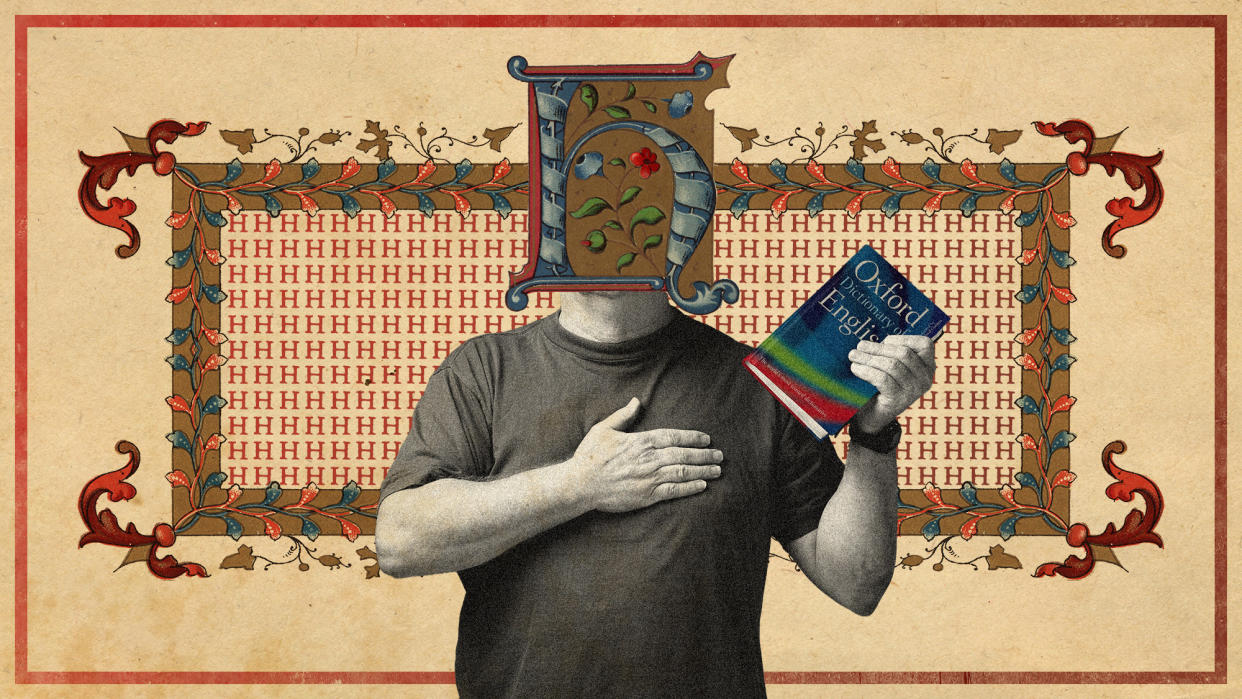Aitch or haitch: the linguisitic debate that 'matters a lot'

- Oops!Something went wrong.Please try again later.
The host of "University Challenge", Amol Rajan, is to change the way he pronounces the letter "H" after complaints from viewers that he was doing it incorrectly during his first series presenting the BBC quiz.
Rajan found himself at the centre of a linguistic storm when he was criticised by viewers for saying "haitch" rather than "aitch", an approach described as "horrible with a capital aitch" on social media and "truly awful" in a newspaper letters page.
'Lower-class Dickens character'
In an article for the BBC about the lessons he learned from his first series of "University Challenge", Rajan said: "All my life I've pronounced it 'Haitch', dimly aware that I was getting it 'wrong'." However, he then added, "dear reader, I'm here to tell you: it's 'Aitch'", before explaining that "this matters a lot to a lot of people, which is fair enough".
"Your starter for 10: what is the correct way to pronounce the letter H?" asked Jonathan Margolis in The Independent. "Your answer may reveal more about you than you might think."
Margolis admitted: "I really 'ate haitch", because "as a not posh but upwardly mobile Essex person" he found that saying haitch was "either a faux pas, or a comedic way of sounding like a lower-class Dickens character".
But nowadays, the worm has turned and haitch is a "misaimed, try-hard attempt to sound posh", so he has "an awful feeling that when I carefully say 'aitch', younger people think it's me that's ignorant".
'Pernickety viewers'
Rajan has been "bullied" into moving to aitch by a "handful of pernickety viewers who have bridled at what they regard as a mispronunciation", said Craig Brown in the Daily Mail. Rules about correct speech "come and go", and "there is no right or wrong" on the aitch/haitch debate. "To my mind, you can pronounce them any hold 'ow," he said.
H is "the most contentious letter in the alphabet", wrote the poet and children's author Michael Rosen in The Guardian in 2013, with "aitch" considered "posh and 'right'", while "haitch" is "not posh and thus 'wrong'".
He explained that the two variants "used to mark the religious divide in Northern Ireland" – aitch was Protestant, haitch was Catholic, and "getting it wrong could be a dangerous business".
The debate is just as fierce in Australia, where ABC News reported on the "H wars" in 2016. Lexicographers are a "hardy bunch, who shirk not the sweat of labour", and the Australian National Dictionary Centre analysed contestants' pronunciation of the letter when requesting it on the game show "Wheel of Fortune" during 1998. They found the two versions "roughly equal" and concluded that "Australians from a wide variety of backgrounds are haitchers these days", and that "any sectarian (or class-based) split on the pronunciation is long gone".
But the "haitch" pronunciation that got Rajan into hot water may be useful for children, because when the letter H is pronounced beginning with the letter sound it makes, children have an "easier time learning its correspondence as they learn to read".
So "whatever your visceral reaction to pronouncing H one way or the other", said academics Kate Burridge and Catherine McBride on The Conversation, "haitch has definite benefits for letter sound learning".

